
What's Going On is the eleventh studio album by American soul singer Marvin Gaye. It was released on May 21, 1971, by the Motown Records subsidiary label Tamla. Recorded between 1970 and 1971 in sessions at Hitsville U.S.A., Golden World, United Sound Studios in Detroit, and at The Sound Factory in West Hollywood, California, it was Gaye's first album to credit him as producer and to credit Motown's in-house session musicians, known as the Funk Brothers.
Gary Ronnie Stewart was an American musician and songwriter, known for his distinctive vibrato voice and his outlaw country sound influenced by southern rock. At the height of his popularity in the mid-1970s, Time magazine described him as the "king of honkytonk." He had a series of country chart hits from the mid- to late 1970s, the biggest of which was "She's Actin' Single ", which topped the U.S. country singles chart in 1975.

Robert Thomas Christgau is an American music journalist and essayist. Among the most well-known and influential music critics, he began his career in the late 1960s as one of the earliest professional rock critics and later became an early proponent of musical movements such as hip hop, riot grrrl, and the import of African popular music in the West. Christgau spent 37 years as the chief music critic and senior editor for The Village Voice, during which time he created and oversaw the annual Pazz & Jop critics poll. He has also covered popular music for Esquire, Creem, Newsday, Playboy, Rolling Stone, Billboard, NPR, Blender, and MSN Music, and was a visiting arts teacher at New York University. CNN senior writer Jamie Allen has called Christgau "the E. F. Hutton of the music world – when he talks, people listen."
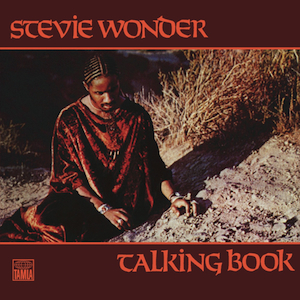
Talking Book is the fifteenth studio album by American singer, songwriter, and musician Stevie Wonder, released on October 27, 1972, by Tamla, a subsidiary of Motown Records. This album and Music of My Mind, released earlier the same year, are generally considered to mark the start of Wonder's "classic period". The sound of the album is sharply defined by Wonder's use of keyboards and synthesizers.
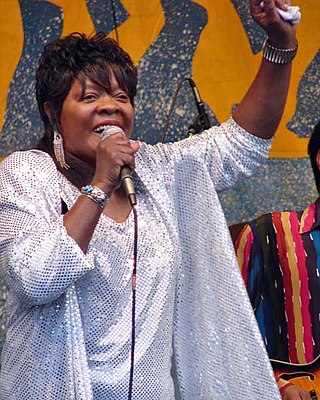
Koko Taylor was an American singer whose style encompassed Chicago blues, electric blues, rhythm and blues and soul blues. Sometimes called "The Queen of the Blues", she was known for her rough, powerful vocals. Over the course of her career, she was nominated for 11 Grammy Awards, winning 1985's Best Traditional Blues Album for her appearance on Blues Explosion.
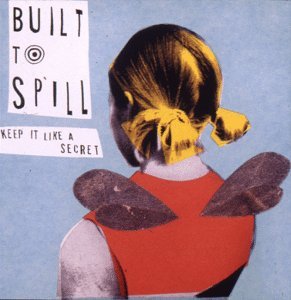
Keep It Like a Secret is the fourth studio album released by American indie rock band Built to Spill, and their second for Warner Bros. Records.

Vol. 2... Hard Knock Life is the third studio album by American rapper Jay-Z. It was released on September 29, 1998, by Roc-A-Fella Records and Def Jam Recordings. It went on to become his most commercially successful album, selling over 6 million copies in the United States. In the liner notes of the album, Jay-Z gives his thoughts on various tracks. The lyrics to the fast-paced "Nigga What, Nigga Who " are also included.

Songs About Fucking is the second and final full-length studio album by the punk rock band Big Black, released in 1987 by Touch and Go Records, and reissued in 2018. The album includes a rendition of Kraftwerk's "The Model" in a remixed version from that which appeared on Big Black's then-recent single. The compact disc of Songs About Fucking added the other side of that single, a cover of Cheap Trick's "He's a Whore".

Lucinda Williams is the third studio album by American singer-songwriter Lucinda Williams, released in 1988, by Rough Trade Records.

Distant Plastic Trees is the debut studio album by American indie pop band The Magnetic Fields, released in 1991. Lead vocals on the album are performed by Susan Anway.

Pernice Brothers are an American indie rock band. Formed by Joe Pernice in 1998 after the breakup of his old band, the Scud Mountain Boys, and including Joe's brother Bob Pernice, the band recorded their first album, Overcome by Happiness, for Sub Pop in 1998. After a three-year hiatus, Pernice Brothers returned in 2001 with The World Won't End; after parting with Sub Pop, the album was released on Pernice's own label, Ashmont Records, co-owned with his long-time manager Joyce Linehan, which in 2003 released Yours, Mine and Ours. After a 2004 tour, the band released their first live album in early 2005, Nobody's Watching/Nobody's Listening, and, in June of the same year, released their fourth studio album, Discover a Lovelier You. The band released Live a Little, their fifth studio album, in October 2006. Goodbye, Killer was released in June 2010, after which the band did not release another album until 2019's Spread the Feeling. The band's songs are characterized by lilting melodies and intelligent lyrics.

The World Won't End is the second studio album by American indie rock band Pernice Brothers. It was released by Ashmont Records on June 19, 2001. It peaked at number 26 on the UK Independent Albums Chart.
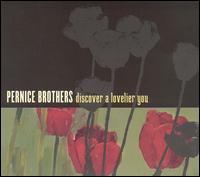
Discover a Lovelier You is the fourth studio album by American indie rock band Pernice Brothers, released on June 14, 2005, by Ashmont Records.

Moby is the debut studio album by American electronica musician Moby, released in July 1992 by record label Instinct.

Charles & Eddie were an American soul music duo composed of Charles Pettigrew and Eddie Chacon. Their single "Would I Lie to You?", taken from their 1992 debut album, Duophonic, won Ivor Novello Awards in 1993 in the Best Contemporary Song, Best-Selling Song and International Hit of the Year categories. From 1992 to 1995 they hit the top 40 three more times in the UK.

Joseph T. Pernice is an American indie rock musician and writer, who has fronted several bands, including the Scud Mountain Boys, Chappaquiddick Skyline, The New Mendicants and the Pernice Brothers.

Strange but True is a collaborative album by the band Yo La Tengo and Jad Fair. It was released by Matador Records in 1998. The song titles are taken from outrageous newspaper headlines. The lyrics were written by Jad's brother, David.
Thom Monahan is an American producer/engineer and musician who is best known for his work with the bands Pernice Brothers, Fruit Bats and Vetiver. He has also produced albums by Devendra Banhart, Wild Nothing, Beachwood Sparks, and the Chris Robinson Brotherhood.

Christgau's Record Guide: Rock Albums of the Seventies is a music reference book by American music journalist and essayist Robert Christgau. It was first published in October 1981 by Ticknor & Fields. The book compiles approximately 3,000 of Christgau's capsule album reviews, most of which were originally written for his "Consumer Guide" column in The Village Voice throughout the 1970s. The entries feature annotated details about each record's release and cover a variety of genres related to rock music.
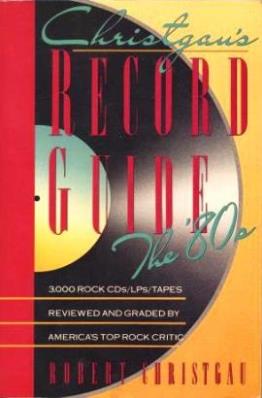
Christgau's Record Guide: The '80s is a music reference book by American music journalist and essayist Robert Christgau. A follow-up to Christgau's Record Guide: Rock Albums of the Seventies (1981), it was published in October 1990 by Pantheon Books.

















